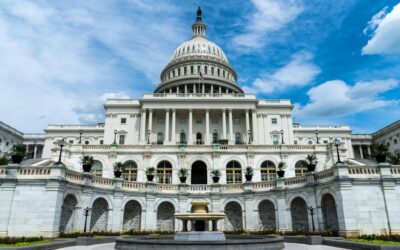With midterm elections only a month away, the media is talking non-stop about who will win, what party will prevail and how voters feel about volatile issues. Most commentators and reporters are focused on House and Senate races… but it is likely that gubernatorial campaigns will determine whether infrastructure reform moves forward.
States like Georgia, Colorado and Florida have long been considered leaders in the use of alternative funding and collaborative initiatives to address infrastructure reform. Voters in these and other states will be major players in determining the future of infrastructure reform.
Six months after Trump’s infrastructure plan was released, little has been accomplished. Because of the negative results of continuing to neglect infrastructure needs in America, this is an important campaign issue and voters should know where candidates stand.
For some P3 states such as New York, where current Gov. Andrew Cuomo (D) holds a 22-point lead over his opponent, nothing is likely to change. But, in states where races are tight, a candidate’s position on infrastructure should be critically important to voters.
In 2015, Georgia enacted legislation enabling public-private partnerships (P3s). That opened the door for all types of infrastructure projects that were funded with private-sector revenue. Now, the state is currently ranked as the #2 leader for infrastructure and global development. It received a B+ rating in aviation, a C- for bridges and a C- for roads on the American Society of Civil Engineer’s (ASCE) infrastructure report card. If those ratings don’t sound good, check out other state infrastructure ratings.
Current polls in Georgia have the gubernatorial race in a statistical dead heat between former State Rep. Stacey Abrams (D) and Secretary of State Brian Kemp (R).

Kemp has been relatively quiet on the subject of infrastructure development and public-private partnerships. He has advocated for expanding high-speed internet access into rural areas but has been skeptical about transportation expansion. On a more positive note, he said widening U.S. 27 near LaGrange to accommodate freight would offer a high return on investment for state taxpayers.
Colorado has for years been considered one of the most progressive states for infrastructure P3 engagements. The Eagle rail project, completed in 2007, was the first rail P3 in the U.S. Colorado’s Department of Transportation has established clear guidelines and procedures for potential P3s in the state but gubernatorial candidates have not made infrastructure a platform issue.
The next Colorado governor will either be U.S. Rep. Jared Polis (D) or Colorado State Treasurer Walker Stapleton (R). Polls show that this race is also a dead heat. Both candidates appear to support infrastructure reform to some degree. Polis has advocated for collaboration between the public and private sectors. Stapleton spoke in favor of Gov. John Hickenlooper’s water plan for the state and stated that an increase of P3s is crucial to paying for the plan.
In Florida, a state with an A rating in public-private partnerships from Building America’s Merit Shop Scorecard, infrastructure is at the center of the debate between Andrew Gillum (D) and Rep. Ron DeSantis (R). To accommodate predictions of the state’s population reaching 26 million by 2030, there has been support for infrastructure P3s. The $3.1 billion Brightline train project that will run from Miami to Orlando has been granted a seven-month extension to sell its $1.15 billion in tax-exempt private activity bonds. The next governor of Florida could easily make or break the rail line.
The former mayor of Tallahassee, Gillum has a history of supporting private investment in public projects but his campaign website fails to mention transportation at all. DeSantis has supported infrastructure reform, but he has not made P3s central to his campaign.
The reality is that most other gubernatorial candidates, like these mentioned, are discussing other issues. It’s sadly obvious that infrastructure reform is not a critical topic in most political campaigns. Too many politicians are not clear about their support or non-support of infrastructure reform. Voters should ask questions before casting votes in November.
Strategic Partnerships, Inc. is one of the leading procurement consulting firms in the U.S. Contact them today to learn how to increase your public sector sales.






